One for those who love exploring culture…
Here’s the ultimate guide to the top art venues, heritage sites, and cultural hubs throughout the UAE. It covers everything from art and music to history and local traditions. Choose your favorite!
Dubai
Arte Museum Dubai

Situated in The Dubai Mall, the ARTE Museum, founded by a Korean artist, invites visitors on a captivating journey through its ‘Eternal Nature’ exhibition. Spanning 14 zones, the exhibition showcases breathtaking artworks and evocative natural elements. As you explore the galleries, you’ll encounter blooming camellia flowers, serene waves, lush forest scenes, and endless starry skies. For a fully immersive experience, visitors can interact with the ‘Live Sketchbook’ exhibit, engaging all their senses.
Bait al Banat Women’s Museum
Situated close to the Gold Souk in Deira, the Bait Al Banat Women’s Museum celebrates the significant influence of women in the region. It provides a deep dive into the history of Emirati women and their pivotal roles in the country’s progress. The museum showcases the lives of notable women, such as artists, activists, and scholars, through photographs, interviews, personal belongings, letters, and diaries. Additionally, it features an art gallery highlighting the creations of contemporary female artists from the UAE, with rotating exhibitions.
Cinema Akil
This stylish art house cinema is the only independent art house in the GCC and champions local, regional and classic cinema. The ethos aligns with the cinema’s ongoing commitment to being the platform where the untold stories of the region are told loud and proud. Located in Alserkal Avenue, this is a full-blown vintage cinema and regularly screens stunning work by local and regional talent to give them a platform to shine at a time when the bigwigs get the big names.
Coffee Museum
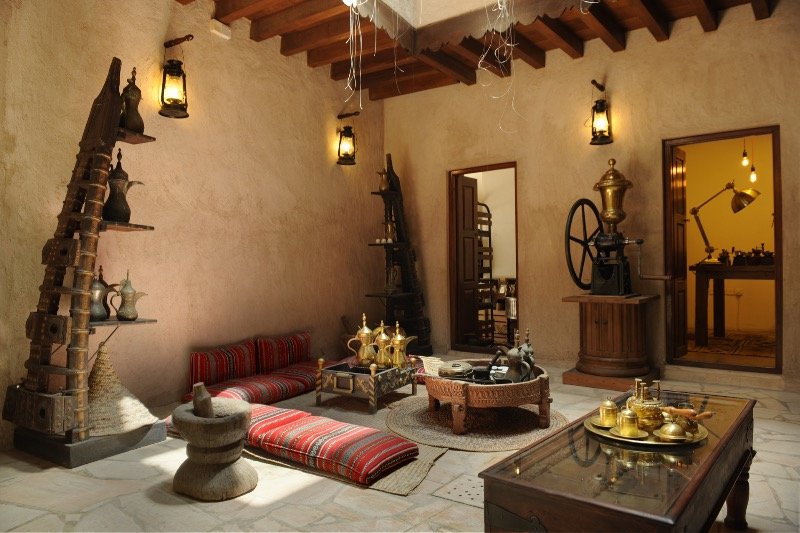
Dubai hosts the largest coffee museum in the Middle East, located in the Al Fahidi Historical District, and entry is free. The museum features an extensive collection of antique items that trace the history and culture of coffee both regionally and internationally. Visitors can explore various regional coffee styles such as Arabic, Ethiopian, and Japanese. The museum also offers the opportunity to enjoy a cup of coffee while learning more about its fascinating heritage in a comfortable setting. For a unique treat, don’t miss their coffee-flavored ice lollies—an insider favorite!
Dubai Coffee Museum, Al Fahidi Historical Neighbourhood, Bastakiya, Villa 44, Dubai, Tel: (0)4 353 8777, @coffeemuseum
Courtyard Playhouse
This project is the brainchild of two residents who transformed a partitioned office space over a year into Dubai’s premier independent small theatre located in The Courtyard, Al Quoz. It’s a testament to Dubai’s diversity and showcases how expatriates contribute to the city they now call home. Today, the venue hosts a variety of events including acting and monologue workshops, improv and comedy shows, as well as plays and screenings, making it a hub for cultural and theatrical activities in Dubai.
Dubai Gold Souk

The Souk stands as a significant landmark in the city, maintaining its traditional charm with enthusiastic vendors vying for sales. It features a bustling gold market, a spice market, and quaint shops offering trinkets and souvenirs. The narrow, open-air lanes are adorned with rustic wooden archways, providing a delightful glimpse into a more authentic side of Dubai, away from the modern extravagance. Dubai’s old town remains steadfast, a proud symbol of the city’s humble origins.
Dubai Opera
This renowned showhouse is a haven of art, culture, and community, showcasing some of Dubai’s finest artists, iconic performances, beloved stories, and a rich tapestry of performing arts spanning across history and modern times. The expansive theater can accommodate up to 2,000 guests within its sprawling 650,000 square feet space. From ballet, opera, and plays to musical performances, concerts, and stand-up comedy, this venue offers a diverse array of entertainment options to suit every taste.
Efie Gallery
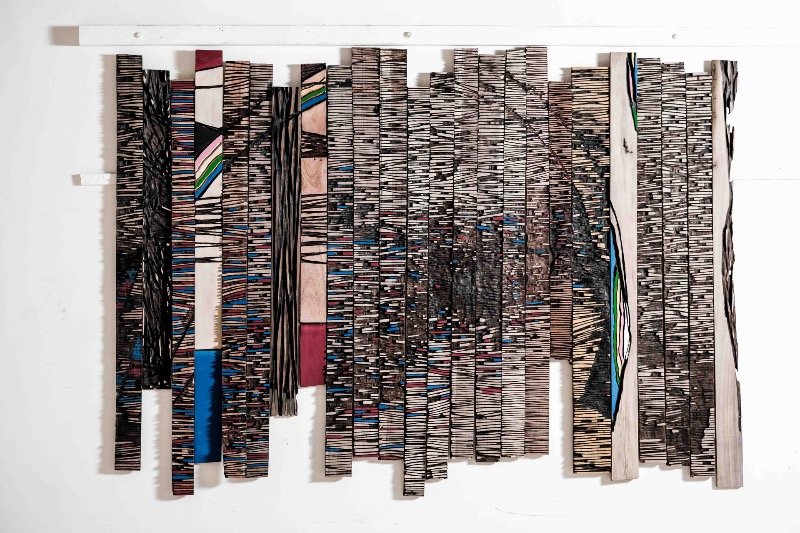
The Efie Gallery specializes in showcasing and promoting African art through a variety of artists, exhibitions, and a vibrant residency program that encourages collaborations with local artists, institutions, and community members. Stay updated with their social media channels as they frequently host dynamic exhibitions, spotlighting emerging talents in the art scene.
Efie Gallery, Al Khayat Art Avenue, Al Quoz 1, Dubai, Tues to Sun 11am to 7pm, Mon closed, Tel: (0)42 524 182, efiegallery.com
Etihad Museum
The Etihad Museum chronicles the founding of the UAE and is aptly situated next to Union House, where the historic treaty establishing the UAE was signed in 1971. Reflecting its historical theme, the museum’s architecture resembles a manuscript, featuring seven columns that symbolize the pens used during the signing of the declaration. It’s a wonderful blend of history and heritage in one compelling location.
Al Fahidi Historical Neighbourhood
The Al Fahidi Neighborhood is a treasure trove of museums. Located in Al Fahidi Fort, the Dubai Museum stands as Dubai’s oldest existing building, constructed in 1787. Currently undergoing renovations, the fort has been transformed into a museum showcasing the city’s rich history and heritage, detailing everything from daily life to warfare and trade practices. Discover ancient artifacts predating the oil boom, providing insights into Dubai’s past. Additionally, nearby museums include the Dubai Coffee Museum, celebrating local coffee culture, the Coin Museum in Bur Dubai, and the residence of Sheikh Saeed Al Maktoum.
The Fridge
The Fridge in Alserkal Avenue is an inclusive creative hub renowned for hosting top-notch events, concerts, cultural programs, and festivals. It’s a magnet for artists and creatives worldwide due to its lively and diverse offerings. The venue specializes in live events and performing arts, featuring talks, workshops, concerts, poetry readings, open mic nights, stand-up comedy, and a variety of engaging activities.
Hatta Heritage Villageu
Hatta is famous for its mountain ranges, exciting glamping experiences, and thrilling sports activities. However, the town also boasts rich history and heritage. Step back in time at the Hatta Heritage Village, nestled amidst the majestic Hajar mountains and surrounded by beautiful date palms and vast landscapes. Explore over 30 refurbished structures and envision life as it was in days gone by.
Heritage Express

Embark on a delightful journey through Dubai’s most renowned cultural sites aboard the charming Heritage Express. This mobile history lesson offers a glimpse into the lesser-known aspects of the UAE beyond its remarkable modernity. Starting from the Sheikh Mohammed Centre of Culture and Understanding, the Heritage Express guides you through the hidden gems of cafes, museums, and art galleries within the Al Fahidi Historical Neighborhood. Discover the local culture, traditional attire, customs, and the foundational Emirati way of life that shapes the local society. As you ride past the city’s cherished cultural landmarks, enjoy traditional songs and stories passed down through generations.
IMMERSEE
Immersee isn’t just a visually stunning art space; it’s a powerful advocate for sustainability. Through its immersive art experiences, expansive multimedia installations, and performances, Immersee aims to educate its audience about sustainability. Walking through its walls feels like stepping into a gallery filled with paintings come to life. The building itself is at the forefront of technology, operating as a net zero emissions building powered entirely by solar energy. Immersee integrates art projections, visuals, narratives, soundscapes, and cutting-edge technology to convey its impactful message. It’s an innovative approach to raising awareness about an important cause and making learning more engaging.
Iranian Mosque
The Iranian Mosque, a stunning example of Islamic architecture, stands as a significant attraction in Dubai. Established in 1979 by the local Iranian community with support from the Iranian Red Crescent, it is also known as the Imam Hussein Mosque. The design blends influences from quasi-Fatimid and Persian styles, featuring exterior walls adorned in vibrant tiles of blue and other bright colors.
The mosque houses a library boasting over 14,000 books covering diverse topics in Arabic, Persian, Urdu, and English languages. The Sheikh Mohammed Centre for Cultural Understanding offers four weekly tours of the mosque, providing non-Muslim visitors with the opportunity to explore its cultural and architectural richness.
Jameel Arts Centre
Jameel Arts Centre is your go-to destination for contemporary art. Situated at Al Jaddaf Waterfront, this independent institution is committed to showcasing contemporary art and fostering community engagement through learning, research, and commissions. In addition to its vibrant exhibitions of contemporary and modernist art, the centre features a library, co-working spaces, a sculpture park, and gardens.
Beyond exhibitions, Jameel Arts Centre leads educational initiatives and provides support for local artists, nurturing their growth and creativity within the cultural landscape.
Jumeirah Mosque
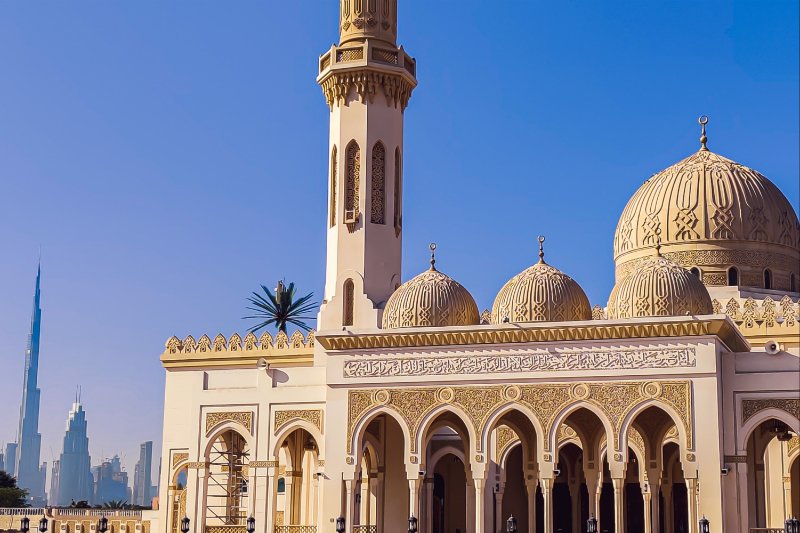
The Grand Jumeirah Mosque, a gift from the Late Sheikh Rashid bin Saeed Al Maktoum, first opened its doors in 1979. It has since become one of Dubai’s beloved landmarks, known for its engaging Open Doors. Open Minds program. The mosque welcomes visitors daily at 10am and 2pm, excluding Fridays. The guided 75-minute tour, priced at Dhs35 per person, includes light Emirati refreshments at the majlis before the program begins.
Jumeirah Mosque, Jumeirah 1. Daily except Fridays 10am and 2pm, Dhs35 per person, jumeirahmosque.ae
Leila Heller Gallery
The Leila Heller Gallery at Alserkal Avenue marks the brand’s first international venture outside New York, garnering global acclaim over three decades. Renowned for fostering creative dialogue and cultural exchange between Western artists and those from the Middle East, Central Asia, and Southeast Asia, the gallery in Dubai spans 14,000 square feet. It boasts three exhibition spaces and serves as the largest art gallery in the UAE. Regularly showcasing top-tier local artists, the gallery invites both art enthusiasts and novices to delve into a distinctive art experience. Visit now to explore a unique world of artistry.
Mohammed Bin Rashid Library
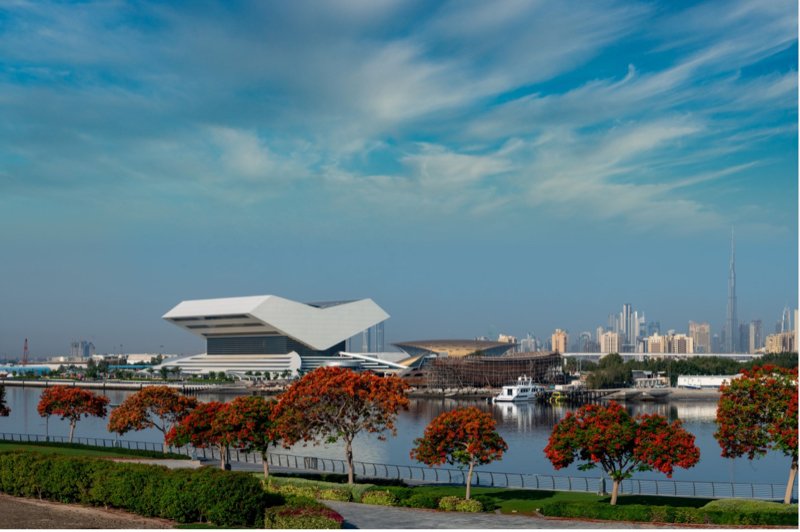
The Mohammed Bin Rashid Library, situated at the Al Jaddaf Waterfront, is an unmistakable sight resembling a book atop a giant rehl, the traditional stand for the Quran. This design choice perfectly aligns with its purpose as a library. Beyond its striking appearance, the library serves as a vibrant center for knowledge, learning, culture, and creativity. It houses one of the city’s most extensive and impressive collections of books and also features co-working spaces and a diverse lineup of events. It’s a true hub where education and innovation intersect, inviting visitors to immerse themselves in a world of literature and intellectual exchange.
Quranic Park
Situated in Al Khawaneej, the Quranic Park provides an enriching cultural and educational experience centered around Islamic heritage. Designed to be both informative and enjoyable, it’s an ideal destination for families, children, and anyone interested in learning more about the Holy Quran. Spanning 64 hectares, the park offers insightful exhibits on various aspects of the Quran, featuring attractions like The Glass House, the Cave of Miracles, and the Park itself. While entry to the park is free, there is a Dhs5 fee to visit The Glass House and the Cave of Miracles.
Al Safa Art and Design Public Library
Situated on Al Wasl Street, the Al Safa Art and Design Library is a vibrant haven for creatives and art enthusiasts alike. It serves as a gathering place where individuals can meet, create, work, research, read, and collaborate. This dynamic platform fosters a sense of community within the art scene, reflecting Dubai’s commitment to becoming a more educated, inspired, and creative city.
The library offers an all-encompassing experience with a collection of over 62,500 books, complemented by art installations, paintings, and photographs. It features co-working spaces and an art gallery where designers, architects, and artists can come together for collaboration and inspiration. It’s a hub where culture, creativity, and knowledge converge, enriching the local artistic landscape.
Satwa

Satwa is a charming glimpse into Dubai’s history. This neighborhood feels like a unique pocket frozen in time—not as ancient as Old Dubai it preserves, yet not as modern as the towering skyscrapers and dazzling lights of Sheikh Zayed Road. It’s like a window into a transforming cityscape, where you can witness change happening in real time.
If not the neighborhood itself, you’ve likely seen the iconic wall-climbing, larger-than-life graffiti art adorning many buildings in Satwa. These artworks have become pop-culture symbols of the area, embodying its essence perfectly—youthful heritage and vibrant energy.
Al Shindagha Museum
Before the UAE became a bustling metropolis, it was a vast desert. The transformation has been rapid and remarkable, and the museum chronicles this journey of change and growth. Step inside, and you’ll be transported back to the 19th century, where you can explore the history of pearl diving, the oil era, cultural traditions, and the pivotal role of the Creek in trade. The museum offers a deep dive into the country’s rich past, providing profound knowledge and insight. You’ll leave with a sense of having glimpsed a different universe altogether—one that existed before these towering buildings shaped the skyline.
Theatre of Digital Art
TODA has established itself as a leading hub that blends art and technology to redefine creativity. As the UAE’s pioneer 360-degree venue, TODA enriches the local technological art scene by showcasing a diverse range of forms—from classical masterpieces to NFTs and new media, encompassing music and theater as well. At TODA, the aim is to challenge the perception that digital art lacks soul, human touch, tenderness, and emotion found in other art forms. Visitors can experience digital shows, immersive 360° live music events, wellness sessions, and more. It’s a dynamic intersection where art meets technology, offering a fresh perspective on modern creativity.
XVA Gallery

The XVA Gallery, nestled within the XVA Art Hotel, showcases a curated selection of contemporary art available for purchase, ideal for both seasoned collectors and newcomers alike. Beyond exhibitions, the gallery provides art consultancy services for those seeking guidance. Located in the Al Fahidi Historical Neighborhood, it offers a cultural oasis where visitors can immerse themselves in the charm of Old Dubai while exploring the area’s rich history and architecture. It serves as an excellent starting point for a journey through the Al Fahidi Historical Neighborhood, capturing the essence of Old Dubai’s allure.
Abu Dhabi
Al Ain National Museum
Unlike many other museums in the country, this museum transports visitors literally back to the beginning of civilization in the region. Located in the city of Al Ain, chosen for its wealth of diverse archaeological sites spanning 5,000 years, the museum offers a captivating journey through history. It houses a plethora of artifacts, discoveries, and more from the Neolithic Age, Bronze Age, Hellenistic period, and pre-oil era. A visit to this museum is a fascinating opportunity to understand how people lived in this region millennia ago and witness the evolution of human civilization over time.
Al Ain Palace Musuem
The Al Ain Palace stands as one of the finest restored palaces in Abu Dhabi, once the residence of Sheikh Zayed bin Sultan Al Nahyan, the Founding Father of the UAE and its first President. Until the late 1960s, Sheikh Zayed and his family lived here before moving to Abu Dhabi. The palace and its private quarters offer a glimpse into the lives and culture of both the ruling family and the community, spanning the period until the country’s transformation following the discovery of petroleum. The oldest building in the palace dates back to 1937, underscoring its rich historical significance and heritage.
Abrahamic Family House

The Abrahamic Family House stands as a powerful symbol of unity, featuring the Imam Al-Tayeb Mosque, St. Francis Church, and Moses Ben Maimon Synagogue. The mosque’s elegant and minimalist design includes seven arches on its exterior, symbolizing the significance of the number seven in Islam. In addition to these places of worship, the complex offers communal spaces like the peaceful and contemplative peace garden. To fully appreciate the experience, visitors are encouraged to book online in advance to secure a guided tour with expert storytellers. Entry to the Abrahamic Family House is free of charge, welcoming all to explore and learn about these interconnected religious and cultural landmarks.
The Arts Centre at NYU Abu Dhabi
The performing arts center at New York University Abu Dhabi campus serves as a vibrant hub of culture, connection, and the celebration of performance. It seamlessly integrates education with creativity, enriching both the university and the wider community it serves. The center hosts a diverse array of showcases including music, theatre, dance, film, poetry, family programs, and a wide spectrum of genres and disciplines. It provides an exceptional platform not only for students but also for locally and internationally acclaimed artists to showcase their talents. Always abuzz with activity, the center continually updates its calendar with exciting events. Keep an eye out for the latest updates to catch the next thrilling performance or cultural event.
Bait Mohammed bin Khalifa

Formerly the residence of the late Sheikh Mohammed bin Khalifa Al Nahyan, father-in-law to Sheikh Zayed bin Sultan Al Nahyan, the Founding Father of the UAE, Bait Mohammed bin Khalifa has undergone renovation to emerge as a vibrant cultural community center in Al Ain.
In addition to preserving its significant heritage, the center now serves as a focal point for community arts, crafts, and creativity. The Al Ain Theatre has established a permanent presence at Bait Mohammed bin Khalifa, offering authentic artistic and cultural experiences including festivals, courses, and workshops. It’s a place where the local community and visitors alike can engage with and celebrate the rich cultural heritage of the region.
Al Ain, daily 10am to 8pm (Fri 2pm to 10pm), free, Tel: (03) 118335, baitmohammedbinkhalifa.ae
BAPS Hindu Mandir

After four years of meticulous craftsmanship by artisans from India and the UAE, Abu Dhabi’s temple in the Abu Mureikha area has been unveiled. Built from pink sandstone and majestic white marble on 27 acres of land, the temple features seven impressive spires, each representing an emirate, adorning the grand structure. Rich in detail and religious significance, the temple showcases intricate carvings crafted by 2,000 artisans using 5,500 tonnes of white marble and 14,500 tonnes of pink sandstone. The temple is open to the public on designated days, offering visitors a chance to explore its history, heritage, and architectural splendor firsthand.
Bassam Freiha Art Foundation
This amazing art space is the latest addition to the city’s art and culture scene. Here, art enthusiasts can explore rarely displayed artworks sourced from private collections nearby, across the region, and around the world. This philanthropic institution was created by well-known art supporter and collector Bassam Said Freiha. The best thing about it? It’s free for everyone to visit. You can find it at Manarat Al Saadiyat on Saadiyat Island. The building itself stands out with its white exterior, giving it the appearance of floating above the water below.
Emirates Heritage Club

Get a taste of life before the skyscrapers and vibey beach clubs at this recreation of a traditional Emirati village, conveniently located next to Marina Mall on the edge of the city. Conceived by the Emirates Heritage Club, you can catch local artisans demonstrating their skills in metalwork, pottery, weaving and glass-blowing. There’s even a mini souk where you can pick-up souvenirs from these time-honoured crafts.
Abu Dhabi Corniche Breakwater, daily 11am to 11pm, Dhs5, Tel: (02) 681 4455, torath.gov.ae
The Founder’s Memorial
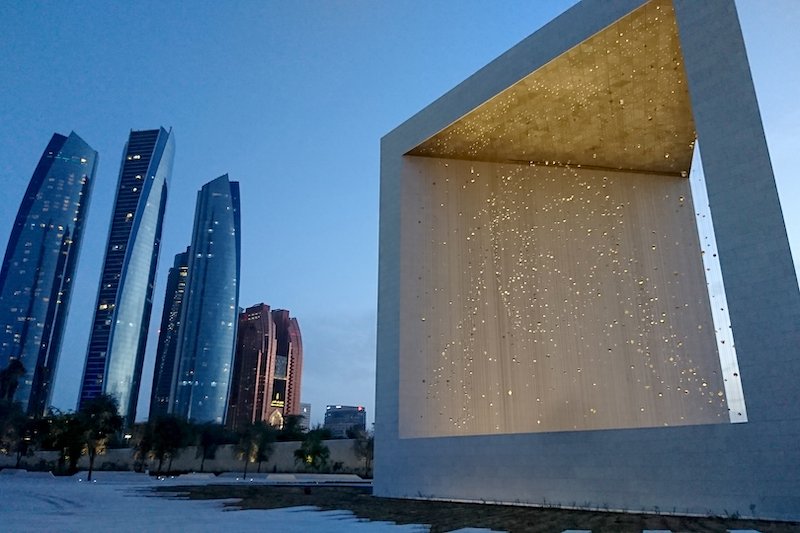
This is the place to visit if you want to learn about the Father of the Nation. The main attraction at The Founder’s Memorial is a large public artwork named ‘The Constellation’. It’s a dynamic three-dimensional portrait of the late Sheikh Zayed that you can see from different angles around the memorial. The artwork is made up of 1,327 geometric shapes – polyhedrons or platonic solids – hanging from 1,110 cables. At night, these shapes light up like stars. Additionally, you can explore an interactive museum where you can learn more about him in detail.
Hafit Tombs
The beehive tombs of Jebel Hafit are remnants from the Bronze Age, scattered in the hundreds around the base of the UAE’s second-tallest peak. These tombs are a testament to the 5,000-year history of Al Ain region, constructed from stone to house the deceased of that era. Known for their dome-like shape, hence the name “beehive,” each tomb, typically made of rough, uncut rocks, is thought to have accommodated between two to five graves. Excavations have yielded various artifacts such as Mesopotamian pottery, beads, spears, daggers, and vessels, shedding light on ancient customs and trade networks.
Hilli Archealogical Park
The Hilli Tombs are easily recognizable for their distinctive domed shape. Situated within the Hili Archaeological Park, this site is among the most renowned archaeological areas in the UAE and forms part of the broader Hili Cultural Site. It holds a significant place in the UNESCO World Heritage Site of Al Ain. The park features remains dating back to the Bronze Age (3000-1300 BCE) and Iron Age (1300-300 BCE), including villages, burial sites, and agricultural structures. The Hilli settlement expanded during the Umm an-Nar period, between 2500 and 2000 BCE, making Hili home to the largest collection of tombs and structures from this era found in the UAE.
Louvre Abu Dhabi

The Louvre Abu Dhabi stands as the ultimate destination for art, history, and culture in the capital. It’s the first international branch of the renowned Louvre Museum in Paris, France, a must-visit for many. This vibrant center of the arts hosts a variety of events including exhibitions, workshops, talks, performances, and art history tours. It frequently features masterpieces from France, offering visitors a chance to see them for limited periods. The stunning dome is a standout feature, casting a beautiful “rain of light” over the grounds as you explore.
@louvreabudhabiTop of FormBottom of Form
Qasr Al Hosn
Qasr Al Hosn has witnessed Abu Dhabi’s growth from its very beginnings, standing as a silent observer of the capital’s transformation. This fort is a national treasure dating back to the 18th century, making it one of the oldest buildings in Abu Dhabi. Built in 1790, it originally housed the city’s first permanent structure – the watchtower. Serving as the focal point of the community, this imposing fortress once commanded views over the coastal trade routes, safeguarding the nascent settlement on the island where the first communities gathered. Over the years, it has served as the residence of the ruling family, the seat of government, and a venue for consultative meetings.
Qasr Al Watan
Located within the Presidential Palace compound in Abu Dhabi, this remarkable landmark is called Qasr Al Watan, which translates to ‘Palace of the Nation’ in Arabic. It serves as a functioning palace for official state visits and summits. In addition to marveling at its stunning Arabian architecture, visitors to this landmark can delve into the UAE’s governing traditions and values, and explore a rich collection of historical artifacts and manuscripts. The palace is adorned in white, symbolizing purity and peace. Tickets can be purchased at the visitors center located at the main entrance of Qasr Al Watan, followed by a short bus ride to the palace itself.
Sheikh Zayed Grand Mosque
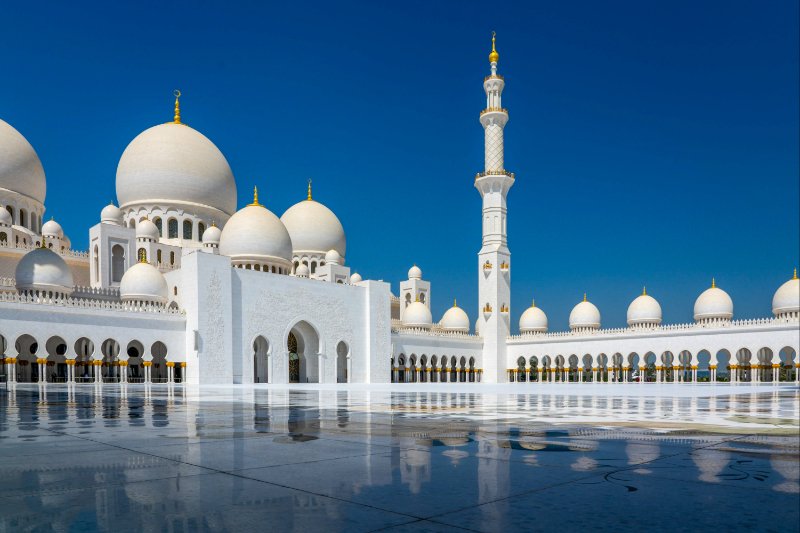
The Sheikh Zayed Grand Mosque, the largest mosque in the UAE, is renowned as one of the world’s most exquisite mosques. Adorned with 82 domes, over 1,000 columns, and surrounded by reflective pools, it presents a breathtaking and pristine white appearance. Inside, visitors encounter marbled halls, gold-plated chandeliers, intricate mosaic artwork, and columns embedded with amethyst and jasper, all paying homage to local culture. Conceived by Sheikh Zayed bin Sultan Al Nahyan, the Founding Father of the UAE, the mosque operates an open-door policy, welcoming visitors from across the globe and accommodating up to 50,000 worshippers daily.
Top of Form
Bottom of Form
Al Wathba Fossil Dunes Reserve
Here’s a fascinating slice of natural history for you. The Al Wathba Fossil Dunes Reserve, situated 45 kilometers outside Abu Dhabi city, boasts over 1,700 fossil dunes. These otherworldly stone formations were shaped over four million years by the relentless forces of wind and sediment deposits, as explained by experts. The reserve is designed to welcome visitors with trails, benches, shaded areas, light and sound displays, and an amphitheater. For those keen on exploring the natural history of the region, this reserve offers an excellent starting point.
Sharjah
Al Majaz Amphitheatre

Welcome to the vibrant performance arts hub of Sharjah, where a diverse array of plays, musicals, community events, and concerts come together. This cultural melting pot celebrates arts, culture, and heritage against the backdrop of a magnificent structure — an open-air theatre inspired by Roman-style amphitheaters, featuring a semicircular design. Spanning 7,238 square meters, the theatre can host up to 4,500 spectators. Positioned on a small island within the Al Majaz Waterfront, Al Majaz Amphitheatre boasts a spacious stage where artists showcase their talents amidst a picturesque setting.
Al Noor Mosque
Al Noor Mosque stands out as Sharjah’s sole mosque open to non-Muslims, offering free guided tours every Monday and Thursday at 10am. This majestic mosque dominates the emirate’s skyline, commanding views over Khalid Lagoon. It features a classic Ottoman design highlighted by 34 domes, and its interior is adorned with intricate calligraphy showcasing verses from the Holy Quran. A popular tourist spot, the mosque provides visitors with complimentary traditional Emirati attire upon entry and serves Arabic coffee or kahwa. Its stunning façade, accentuated by captivating lighting, makes it a landmark that’s hard to miss.
Sharjah Art Foundation
Sharjah Art Foundation is all about uplifting culture, highlighting the arts and giving a platform to admirers, enthusiasts and creators of it. The space hosts galleries and exhibitions on the regular, as well as several programme runs in the year, featuring highly talented, passionate and incredible artists to showcase their craft at several locations in restored heritage houses and art spaces across the city. They have permanent collections as well as guest ones and a whole lot of history to explore as well. Participate in their regular programming and workshops besides the exhibits.
Ajman
Ajman Museum
One of Ajman’s most captivating heritage sites is the Ajman Museum. Housed within a meticulously restored 18th-century fort, it showcases a vast collection of archaeological artifacts. Of particular interest is the exhibition featuring discoveries from an excavated graveyard near Ajman City Centre, where jewelry and pottery dating back to 3,000 BC have been unearthed. This museum offers insights into some of the oldest civilizations that have traversed this region, making it an essential destination for anyone keen to delve deeper into history.
Ras Al Khaimah
Dhayah Fort
Dhayah Fort in Ras Al Khaimah is a must-visit for enthusiasts of UAE history. It stands as the only remaining hill fort in the country, dating back to the Late Bronze Age (1600 to 1300 BC). Today, visitors are drawn to the fort for its rich history, cultural heritage, and breathtaking views. In ancient times, locals used the fort for defense and fortification purposes. The fort holds significant historical importance, notably as the site of a pivotal battle between British troops and the local Qawasim tribes in 1819. At the fort’s base, visitors can explore the expansive Wadi Souq tombs, which date back to between 2,000 and 1,300 BC, offering further insight into the region’s ancient civilizations.
Al Jazeera Al Hamra

This remarkable heritage village is the sole surviving historical pearling village in the entire Gulf region, as others were demolished following the discovery of oil. The neighborhood is incredibly quintessential, featuring elements such as a fort, watchtowers, mosque, souq, and expansive courtyard houses of diverse designs. The architecture includes a range of styles, from small, modest homes and courtyard residences to two-story buildings and a grand courtyard mansion where wealthy pearl merchants once lived. At its peak around the turn of the century, the village boasted approximately 500 houses and was inhabited by the Zaab tribe.
Umm Al Quwain
Umm Al Quwain National Musuem and Fort
Umm Al Quwain, leaning more towards its rural side, holds a rich tapestry of history and heritage despite being the second smallest emirate. Its National Museum proudly showcases its cultural legacy dating back to 1768. Situated in the Old Souq area, this fortress-like complex features a prominent turret that harmonizes with the traditional architecture of its surroundings. Admission is affordable at just Dhs4, and children under 15 can enter for free, making it a great family outing. By the end of your visit, you’re sure to gain new insights into the history of the UAE.
Fujairah
Al Bidia Mosque
This mosque is situated just outside Fujairah in the village of Al Bidya, and it holds immense cultural significance. Considered one of the oldest mosques in the country, it is estimated to have been built between the 15th and 17th centuries, making it around 600 years old. Remarkably, it remains structurally sound and continues to host daily prayers, even while attracting tourists. The mosque is modest in size, characterized by small cut-outs in its walls for windows and a simple design crafted from available materials of its time. It has earned a place on UNESCO’s World Heritage List, recognizing its historical importance.
Fujairah Historic Fort

There’s a wealth of history waiting to be discovered in the lesser-known regions of the country, like Fujairah. One gem for history enthusiasts is Fujairah Fort, built in the 16th century and recognized as one of the oldest forts in the UAE, as well as the largest castle in Fujairah. Its tower rises approximately 20 meters above sea level, providing stunning panoramic views of the city. The fort played a crucial role in defending against invasion and bombardment by the British Royal Navy. Entry is free, so it’s definitely worth a visit to explore this historic site.


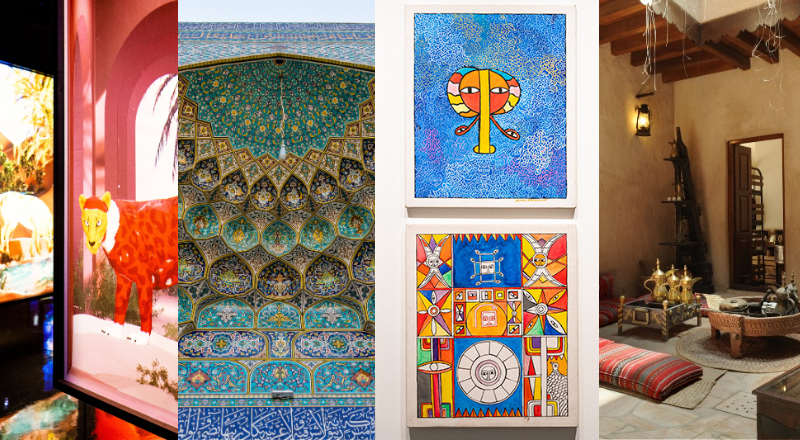




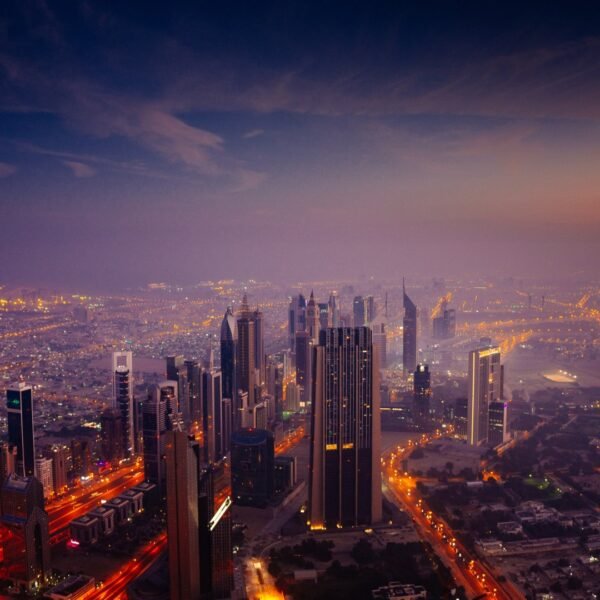
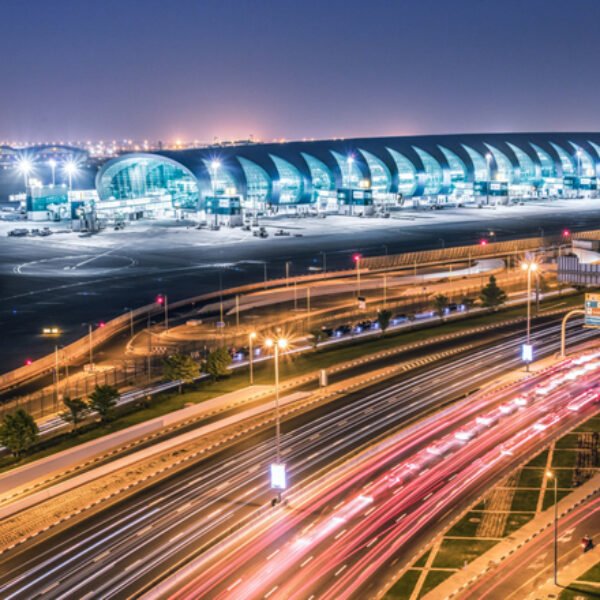
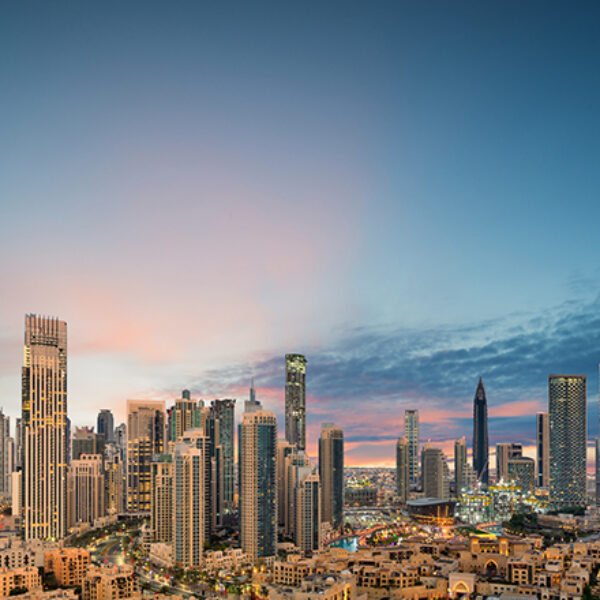
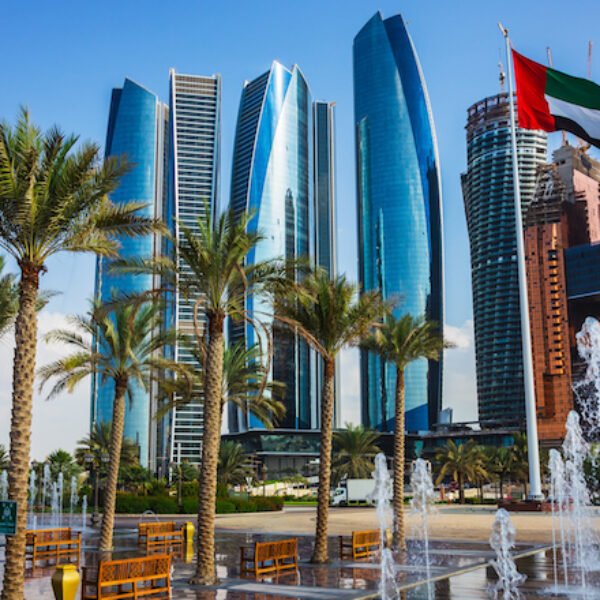







Great suggestion!